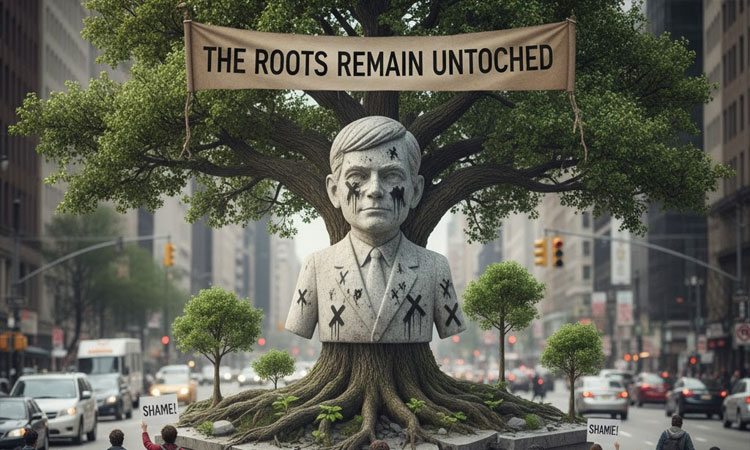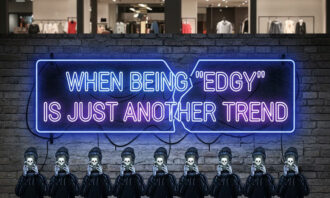Cancel culture has become one of the most polarizing phenomena in today’s digital age. It operates on the belief that calling out an individual, publicly shaming them, or removing their platform can serve as a form of justice. Through viral posts, hashtags, and mass outrage, the online community often acts swiftly, enforcing consequences without nuanced investigation. Although this trend intends to promote accountability, it frequently results in the opposite outcome—superficial consequences rather than meaningful, long-term transformation.
The idea of “canceling” carries an emotional appeal, especially when harmful behaviors or injustices surface. Many people participate in the movement out of frustration, a desire for correction, or a hope to see social change. However, the speed and intensity of digital outrage leave little room for context, dialogue, or rehabilitation. True change requires thoughtful engagement, education, and systemic reform, not instant condemnation. Understanding the limitations of cancel culture is essential for building healthier approaches to accountability. Related article: The Rise Of Core Cultures And Microtrends
The Oversimplification of Complex Issues
Public discourse around sensitive or controversial matters often carries layers of complexity. These issues require careful examination, yet cancel culture reduces them to a binary framework of “good” or “bad,” “acceptable” or “unacceptable.” This framework ignores nuance and oversimplifies human behavior.
Moral Absolutism in Online Spaces
Digital platforms encourage quick judgments. The demand for immediate responses fosters moral absolutism, where individuals are evaluated through one action, phrase, or mistake. This approach disregards personal history, cultural context, or the possibility of personal growth. As a result, conversations lose depth, and opportunities for meaningful correction diminish.
The Pressure to Conform
The environment of cancel culture discourages open dialogue. When individuals fear social punishment, they avoid questioning narratives or seeking clarification. This pressure to conform weakens critical thinking skills and prevents communities from engaging with complex social issues constructively. In the absence of honest discussion, misunderstandings often spread, deepening polarization.
Punishment Without Pathways to Growth
Effective accountability requires guidance and opportunities for improvement. Cancel culture focuses heavily on punishment, often without offering constructive avenues for learning.
Shame as a Deterrent
Public shaming has historically been used as a method to enforce obedience. However, shame rarely produces lasting change. Instead, it triggers defensiveness, withdrawal, or resentment. Individuals who feel attacked are less likely to engage in self-reflection or corrective behavior, undermining the intended purpose of accountability.
The Missing Component of Rehabilitation
Rehabilitation is crucial for genuine transformation. Cancel culture leaves little room for rehabilitation because the goal becomes removal rather than reform. Without opportunities to understand harm, engage in dialogue, or rebuild trust, individuals remain unchanged. This absence of rehabilitation reduces accountability to a symbolic gesture rather than a substantive process.
The Illusion of Collective Power
Digital platforms give users the impression that collective participation automatically generates meaningful change. While mass movements can be powerful, cancel culture often channels energy into symbolic actions rather than structural reform.
Viral Outrage vs. Systemic Action
Viral outrage can raise awareness, but the momentum rarely sustains long-term reform. Many online communities celebrate temporary victories, such as a public apology or the removal of a platform, while ignoring underlying structural problems. Without policy change, education, or institutional accountability, the root causes persist unaddressed.
Short Attention Spans and Fast Cycles
The nature of social media encourages short cycles of attention. After a scandal fades from public view, communities quickly move on to new controversies. This rapid turnover prevents sustained engagement, which is necessary for addressing deep social issues. The temporary nature of cancel culture undermines any possibility of sustained transformation. Don’t miss: The Rise Of Soft Masculinity
How Cancel Culture Reinforces Echo Chambers
Digital platforms are designed to amplify content that aligns with a user’s existing beliefs. Cancel culture intensifies this pattern by discouraging dissent and isolating individuals with differing perspectives.
Limited Exposure to Diverse Opinions
When communities only engage with like-minded viewpoints, they become less open to alternative interpretations or constructive criticism. Echo chambers reinforce emotional reactions rather than critical analysis, limiting the potential for genuine understanding.
Increased Polarization
The absence of diverse dialogue leads to heightened polarization. Groups become more entrenched in their viewpoints, and disagreements escalate into conflicts rather than conversations. This polarization obstructs collaborative efforts toward meaningful social reform.
Accountability Without Education Is Incomplete
Change requires knowledge. Without education, individuals cannot correct behaviors or challenge systemic problems. Cancel culture frequently omits this essential component.
The Need for Contextual Understanding
Understanding harm requires examining historical, cultural, and societal contexts. Education helps individuals recognize why certain actions are harmful and how they impact marginalized groups. Cancel culture rarely provides this context, resulting in shallow responses that do little to foster long-term change.
Guidance for Behavioral Change
People cannot improve without guidance. Constructive accountability requires clear expectations, resources, and pathways to better behavior. Cancel culture rarely offers these tools, making it difficult for individuals to genuinely transform.
Building Better Approaches to Accountability
A more effective model of accountability involves empathy, education, and structured pathways for improvement. These approaches create sustainable change rather than symbolic punishment.
Encouraging Dialogue and Reflection
Dialogue encourages understanding. Allowing individuals to explain perspectives, acknowledge harm, and commit to change fosters emotional maturity. Reflection enables deeper awareness of personal biases and behaviors.
Promoting Restorative Justice
Restorative justice focuses on repairing harm through communication and mutual understanding. This model prioritizes healing for those affected while offering a constructive path for individuals responsible for harm. Restorative justice fosters reconciliation and long-term change more effectively than public shaming.
Conclusion
Cancel culture emerged with the intention of holding individuals accountable, yet its reliance on rapid judgment and public humiliation often undermines its purpose. It simplifies complex issues, discourages dialogue, and focuses on punishment rather than growth. While it may generate temporary consequences, it rarely leads to meaningful reform or a deeper understanding of systemic injustice.
Genuine change requires a shift from punitive measures toward education, conversation, and restorative accountability. These approaches foster empathy, encourage learning, and support long-term transformation. By moving beyond the constraints of cancel culture, societies can create more constructive pathways to justice—pathways that emphasize progress instead of punishment.
Glossary
- Moral Absolutism — The belief that issues are strictly right or wrong, without nuance.
- Restorative Justice — An approach focused on repair and reconciliation rather than punishment.
- Echo Chamber — An environment where only similar opinions are shared and reinforced.
- Rehabilitation — The process of guiding individuals toward healthier behavior.
- Collective Outrage — Mass emotional reaction to an event or behavior.
- Contextual Understanding — Awareness of historical and cultural factors that shape behavior.





